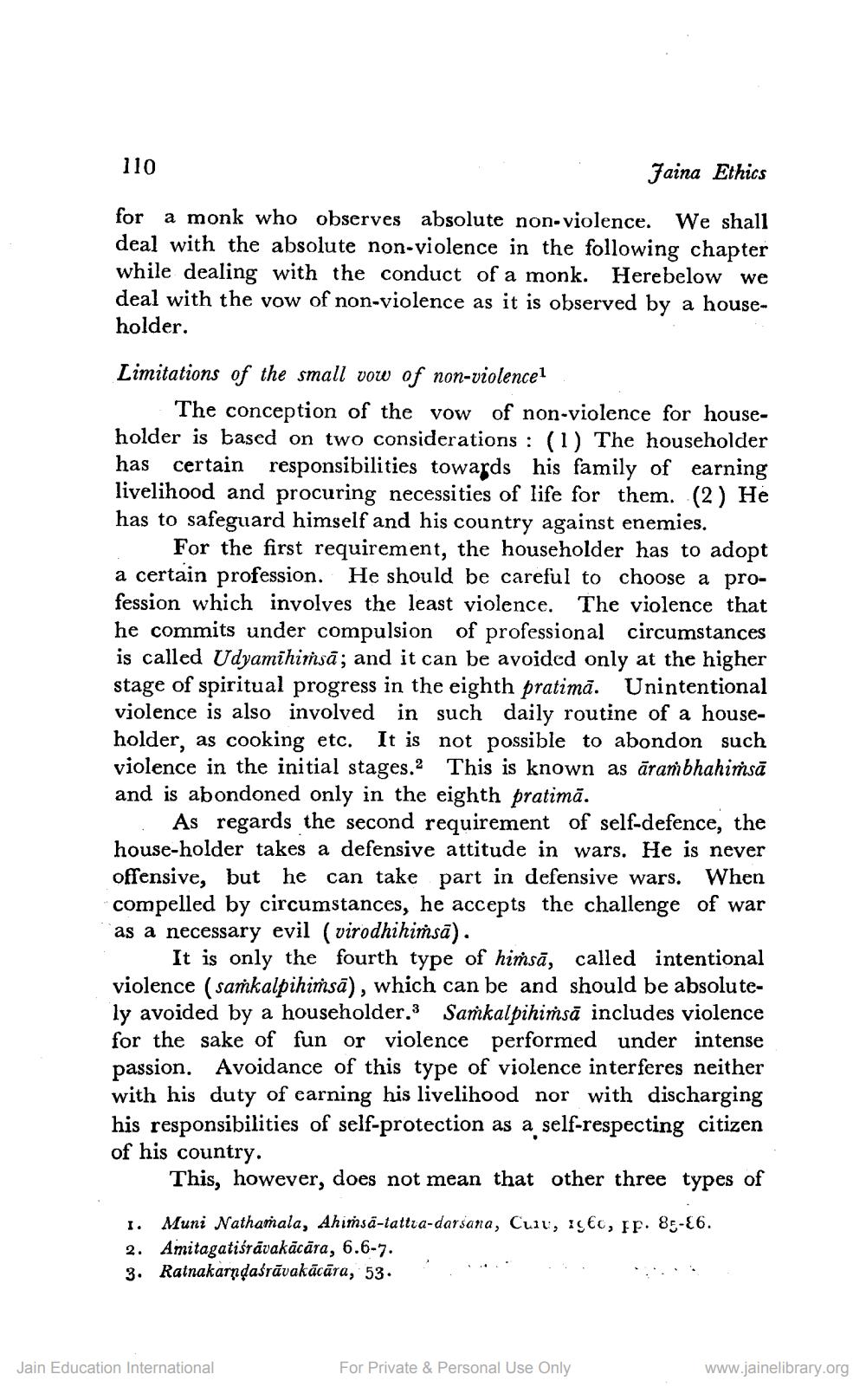________________
110
Faina Ethics
for a monk who observes absolute non-violence. We shall deal with the absolute non-violence in the following chapter while dealing with the conduct of a monk. Herebelow we deal with the vow of non-violence as it is observed by a householder.
Limitations of the small vow of non-violencel
The conception of the vow of non-violence for houseder is based on two considerations : (1) The householder has certain responsibilities towards his family of earning livelihood and procuring necessities of life for them. (2) He has to safeguard himself and his country against enemies.
For the first requirement, the householder has to adopt a certain profession. He should be careful to choose a profession which involves the least violence. The violence that he commits under compulsion of professional circumstances is called Udyamihimsā; and it can be avoided only at the higher stage of spiritual progress in the eighth pratimā. Unintentional violence is also involved in such daily routine of a householder, as cooking etc. It is not possible to abondon such violence in the initial stages. This is known as ārambhahińsā and is abondoned only in the eighth pratimā.
As regards the second requirement of self-defence, the house-holder takes a defensive attitude in wars. He is never offensive, but he can take part in defensive wars. When compelled by circumstances, he accepts the challenge of war as a necessary evil (virodhihiṁsā).
It is only the fourth type of himsā, called intentional violence (samkalpihiṁsā), which can be and should be absolutely avoided by a householder. Samkalpihiṁsā includes violence for the sake of fun or violence performed under intense passion. Avoidance of this type of violence interferes neither with his duty of earning his livelihood nor with discharging his responsibilities of self-protection as a self-respecting citizen of his country.
This, however, does not mean that other three types of 1. Muni Nathamala, Ahimsa-tattra-darsana, Cull, 19€0, jf. 85-26. 2. Amitagatisravakācāra, 6.6-7. 3. Ratnakarndaśrāvakācāra, 53.
Jain Education International
For Private & Personal Use Only
www.jainelibrary.org




